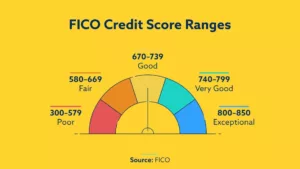Over the past several years, thousands of consumers across the country have been scammed by fake debt collectors – And, apparently the scam NEVER gets old.
The rise in debt collectors posing as attorneys or law enforcement trying to collect on payday loans is astounding.
Most often the consumer completed an online application for a payday loan which was never received or loans they did receive but for amounts not owed.
How the Scam Works
Simply applying for a payday loan online can put you at risk because some websites are specifically designed to collect personal information for identity theft purposes.
The fake debt collector calls your home, job and even cell phone threatening arrest or violence, posing as law enforcement or implying a case has been filed against you.
Sometimes it may be hard to tell the difference between a legitimate debt collector and a fake debt collector because they may have sensitive information such as your bank account number, employment information or even personal references. They can be ruthless but having your personal information does not mean a debt collector is legitimate.
How to Detect the Scam
Trouble Reading Script. A fake debt collector often reads a script; and sometimes bumbles and fumbles through it. Any question posed by you during the reading can throw them off. They can be easily frustrated, especially if you request their address, state bar no., and the jurisdiction where the case has been or is “about to be” filed.
Refers to themselves as Investigator. Impersonating law enforcement is a crime a fake debt collector does not mind committing. But keep in mind law enforcement will never call you to collect a personal debt. Some may even give you a “badge number.” Don’t be intimidated, simply inform them you are going to call the agency they claim to be calling from to establish they are really law enforcement.
Threatens Jail Time. I cannot say this enough, “personal debts are civil matters, not criminal matters.” With that said, there are circumstances when consumers are arrested in conjunction with debts, but it is because they failed to appear in court when summoned, or failed to pay legal fines.
Refuses to give you a Mailing Address. The main weapon of a fake debt collector is fear. They are hoping to scare you enough to get you to pay over the telephone immediately or through Western Union. Fake debt collectors typically do not provide business addresses. It is vital that you request the name of the debt collector or debt collection law firm; the address; and phone number. If they refuse, the conversation is over. There is no need to keep talking. Any legitimate company or law firm will not hesitate to give you a mailing address.
If you manage to get a mailing address immediately request they contact you through the mail only and hang up the phone. You then want to verify the debt collection company through your State agencies such as the Department of Corporations or State Attorney General’s Office.
What to do if you think your’re being scammed
Perform some research and don’t pay one dime. Don’t pay, talk or give out personal information until you are positive the debt collector is legitimate. Do a Google search of the caller’s phone number. If it’s a scammer, your search will likely reveal others with similar problems. There are websites devoted to discussions about debt collectors. If you input the debt collector’s number or the number left on a voicemail message, you may find others who have been threatened in the exact same ways that you have.
Request Written Verification of the Debt. Fake debt collectors almost never put anything in writing. They are hoping you will simply pay them over the telephone out of fear and intimidation. The Fair Debt Collection Practices requires that a debt collector notify you in writing of the debt within five days of their first contact with you. The notice must include the amount of the debt, the name of the creditor you owe, and your rights under the federal Fair Debt Collection Practices Act.
Request the debt collector send written notice of the debt through the United States Postal Service only. Email is not acceptable. If you receive written notice of the debt; although I highly doubt that you will, you then have 30 days to dispute the debt and request debt validation.
Never pay an unverified debt. The bottom line is if in doubt do not pay. And, by all means, never pay any debt when there is no written proof. It can really shake you to get a call from a fake debt collector but never be so shook that you pay or divulge financial information. Besides, paying a fake debt collector will not always make them go away. They may make up another debt to try to get more money from you or pass your information along to the next fake debt collector. It can be a never ending cycle.
Report fake debt collectors. Report the call to the Federal Trade Commission, your state Attorney General’s office and the Consumer Financial Protection Bureau.
Request No Telephone Calls. Put your request in writing. The Fair Debt Collection Practices Act (FDCPA) requires any debt collector to stop calling if you ask in writing. Of course, if the debt is real, sending such a letter does not get rid of the debt, but it should stop the contact. See Sample Letter
Don’t give or confirm any personal information. Fake debt collectors may only have minimal information about you. Do not furnish or confirm financial, employment, banking or other sensitive information. Even if the caller has legitimate financial information about you, it could still be a fake debt collector. Consumers who have applied online for a payday loan seem to be particularly vulnerable to having fake debt collectors call them even after the payday loan has been repaid.
Turn the tables on fake debt collectors by demanding information from them; not giving them information. Of course you could always ignore them and eventually they will probably go away.











